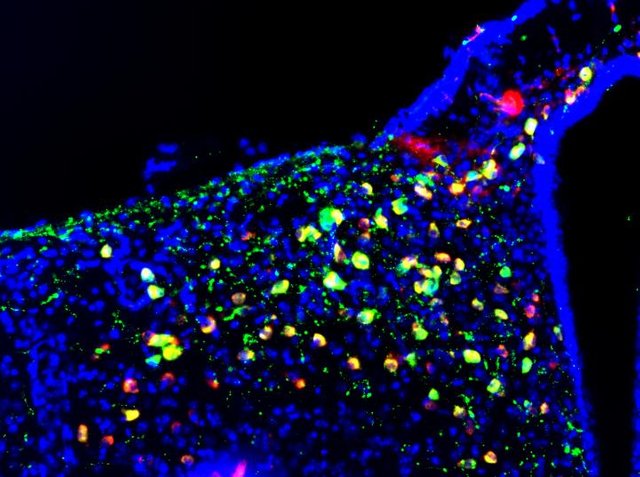Disruption of cell signaling pathways may be the cause of obesity
According to modern scientific concepts, obesity is one of the most cause of death. Although this disease can't kill by its own, obesity significantly increases the risk of such diseases like ischemic heart disease, stroke, hypertension or diabetes.
To defeat this threat, scientists all around the world are trying to get a better understanding of the mechanisms that underly the development of obesity. One of the most promising areas of this researches is the study of dysfunctions of the areas of the human brain that regulates feelings of hunger and satiety.
Unfortunately, for a long time, a thoughtful study of this areas was a very difficult task due to lack of sufficient amount of brain tissues derived from a living person. Partially the problem was solved by the use of cell reprogramming. Using this method scientists was able to receive a sufficient amount of neurons from human fibroblasts (connective tissue cells), but these neurons differ significantly from regular brain cells.

Hypothalamus fluorescent microscopy. Credit
A study conducted by scientists from Cedars-Sinai Medical Center, LA, solved this problem. They developed a method that can reprogram fibroblasts into fully functional neurons that don't differ from regular brain cells. The secret of their success lies in the precise regulation of several signal pathways such as SMAD (Similar to Mothers Against Decapentaplegic), Shh (Sonic Hedgehog), Notch and Wnt. All of this pathways play a crucial role in the development and differentiation of stem cells into adult cells. Thanks to a carefully selected combination of these factors, scientists were able to reproduce a natural process of hypothalamic neurons and preserve the functional features of these cells.
Another advantage of this method is a smaller number of reagents required to make a transformation compared with older methods.
As a result, it became possible to obtain a more accurate model of molecular changes that occur in the hypothalamus due to obesity. In particular, researchers have discovered that obesity causes several changes in the expression of beta-adrenergic receptor genes and BBS2 gene. Moreover, they found a number of changes in the signaling pathways that regulate the response to the action of the several hormones. In particular, they found that neurons derived from connective tissue of obese patients were much more responsive to the action of ghrelin - the hormone that stimulates hunger
Why is it important?
These findings indicate that obesity is more than just a consequence of bad habits. This disease has an underlying molecular mechanism that makes self-control more difficult, so the key to the proper treatment of this problem may rely not only in proper diet and healthy lidestyle but also in usage of pharmacological threatment that will eliminates the consequences of disruption of hypothalamic cell signalling pathways
Great job. Keep on keeping on. If you keep up with such good posts you can be sure you will suceed.
Thank you